Volos
Volos is a port city on the east coast of mainland Greece, next to the Pelion mount. Its small but active Jewish community (100) still maintains a functioning synagogue and a cemetery, and has published several.
Historical background
Jewish presence in Volos is dating back to the 6th century A.C., as recorded in various sources, such as Greek accounts and ancient gravestones discovered in the vicinity of the city. Jewish sources from the Hasmonean period (200-135 BC) refer to this area as one of the Greek regions settled by Jews. The 12th century traveller, Benjamin of Tudela, found about 400 Jewish families in the neighbouring towns of Amylos, Gardiki and Bissena. Under the Ottoman rule (16th-18th centuries), the local Jews were prosperous financially and culturally, setting as a model of a successful community for other Jewish communities in the area. Volos, too, got its share of Sephardim (Spanish Jews fleeing the Inquisition), though the Romaniote element (Jews of Greek origin) remained dominant up to our days. The 1881 taking over of the city by the Greek army further strengthened the local Jewish presence, now taking active part in the city’s commercial and social life.
By that time, the local Jewish community was organized as an official body. This development was followed by the formation of several associations, including the 1910-formed Zionist Association, “Poalei Zion”, “Ahavat Reim” (formed 1907), “Ozer Dalim” (1910) and “Agudath Ahim” (1920). In addition, the community set committees in charge of the functioning of its institutions: the 1870-established Synagogue, the cemetery which was erected in the late 19th century, and so on.
A local Jewish school, initiated by the local community and sponsored by the Alliance Israélite Universelle, started its operation in 1864. A further Jewish school, as well as Yeshiva were established in 1894, under the direction of Rabbi Pessah. In 1930 and 1933, the sports team “Hakoah” and the scouts club “Maccabee” were founded respectively. All these institutions and associations ceased to operate in the Holocaust.
The harmonious picture was interrupted with the starting of World War II. Like the rest of their co-religionists, Volos Jews too took an active part in the resistance efforts, offering their services to the Greek army. Some of them were killed and injured in the front. The actual persecution of the local Jewish population started with the fall of the city in German hands, following the surrender of the Italian forces that controlled the area up to October 1943.
Thanks to the support of the local Orthodox population, authorities and church, the majority of the Jews managed to save their lives, taking refuge in the surroundings villages. 136 members of the community were, nevertheless, caught by the Nazis and sent to death camps. Several more were killed in the course of military actions and hardships. Most young Jews joined the Greek underground, contributing much to the resistance efforts.
With the liberation of Greece, October 1944, the Jews of Volos returned to their city, facing the plundering of their businesses and the destruction of their Synagogue. Supported by local and external Jewish organizations, assistance was supplied to the sick and the needy. The Synagogue was restored and the community life was revived. The 1948 establishment of Israel brought about a massive immigration to the Jewish State. Once again the community was shocked with the severe 1955 earthquakes which destroyed the Synagogue, the community offices as well as many houses and shops. Though this time too all was restored, many members chose now to leave for other destinations, mainly for the United States.
Today, despite its small size, the community continues to be active: synagogue services, holidays, various Jewish organisations, publications…
Of the distinguished members of the Volos Jewish Community the following should be mentioned: the late Chief Rabbi Moshe Pessah (1869-1955), a legendary figure who served as a spiritual leader during the difficult years. For his services, Rabbi Pessah was awarded with medals by King Georges II (in 1939), by the British Allied Headquarters (1945) and by the Greek State (1952. Also to be mentioned is the educator Sarina Mizrahi, active in many Jewish organisations. She had played the role of Esther in an adaptation of Racine’s play (1922) that drew very positive critics from all over Greece.
The Jews of Volos contributed to a great extent in the foundation of Charity institutions, cultural and sports associations and professional organizations. In order to honour the local Jewry, the Municipality of Volos named certain streets as follows: “Moisseos Street” (1892), “Palestinis Street” (1922) (for the Balsour declaration), “Abraham Benaroyiah Street” (1984) and “Archiravinou Moissi Pessach Street” (1993).
Sites:
The synagogue
The present day synagogue reproduces to some extent the form and character of that which was erected in 1865. It was built after the earthquakes of 1955-7 had greatly damaged that which has been built after WWII. As is the custom in many Romaniote communities in Greece, it is simply referred to as “the synagogue”.
Location: at the junction of Platonos, Xenofondos and Moiseos in the heart of the commercial district of Volos. (+30) 24210 253 02
The cemetery
It contains a few hundreds gravestones, including ancient ones which were transferred from the old cemetery.
Location: Adjacent to the Christian cemetery, at the junction between Taxiarhon and Paraskevopoulou Streets.
Based on Jewish Sites and Synagogues of Greece –
Nicholas P. Stavroulakis and Timothy J. DeVinney – Talos press

